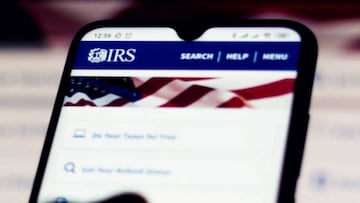IRS Disallowed Credit: What to do if your claim for EITC is denied
Making an error on your tax return can delay receiving you refund or the IRS may deny some or all of a credit claimed. Here’s what to do when that happens…

The Earned Income Tax Credit (EITC) can put thousands of dollars in taxpayers’ pockets that qualify to claim it. The credit is aimed at low-income workers and their families possibly worth almost $7,000. However, the credit comes with strict rules on who is eligible and the amounts that they can claim.
The Internal Revenue Service warns taxpayers that they are responsible for making sure that everything on their tax return is correct, even if someone else prepares it for you. Mistakes could result in your refund being delayed, an audit or the tax agency denying some or all of a credit claimed.
In the event that the IRS finds that you sent an erroneous tax declaration, the agency will send you a letter to inform you. You will need to pay a penalty and any money, along with interest, that you may owe the IRS if reasonable cause does not apply.
Additionally, the following year you will need to submit a Form 8862 with your tax return if you are eligible to claim the credit in question and do so. Here’s a look at what happens when the IRS disallows a credit and what you need to do…
Do you qualify for the Earned Income Tax Credit? Check the #EITC Assistant to see if you qualify for a valuable #IRS tax credit this year: https://t.co/4WmGI3TWdx pic.twitter.com/J3fbbOxCGN
— IRSnews (@IRSnews) March 22, 2023
What to do if your claim for EITC is denied
Making a mistake when claiming the EITC may carry with it a penalty on top of paying the amount of the credit that you weren’t eligible to claim, plus interest. This also applies to the Child Tax Credit (CTC), Additional Child Tax Credit (ACTC), Credit for Other Dependents (ODC) and American Opportunity Tax Credit (AOTC).
Depending on the circumstances you may also be banned from claiming the EITC for 2 to 10 years (this does not apply to the other credits). The IRS will send you a letter if you are denied some or all of the credit or credits that you claimed. You can dispute the penalty by calling the IRS at the number in the upper right corner of the letter you receive or you can write to the agency.
However, if you are not banned from claiming the credit and meet all the requirements to do so the following year, you will be required to fill out a Form 8862, “Information to Claim Certain Refundable Credits After Disallowance”, and submit it with your tax return. That is unless the IRS automatically recertifies you, the agency will send you a CP74 or other letter to inform you that filing a Form 8862 with your tax return will not be necessary to receive the credit.
#IRS offers lots of online tools to answer common tax questions. For example, you can search the Interactive Tax Assistant: https://t.co/5OdM6EQEKl pic.twitter.com/VTgU8DrRR7
— IRSnews (@IRSnews) March 21, 2023
Most common errors when claiming the EITC
Taxpayers will be banned from claiming the EITC for two years if the final decision was based on reckless or intentional disregard of the rules on the part of the filer claiming the EITC. In the case of fraud when claiming the EITC, the ban is ten years.
Related stories
However, there are some common errors that filers make when claiming the EITC, be they in the math, clerical or miscommunication. The IRS lists five of them:
- Your Child Doesn’t Qualify
- More than One Person Claimed the Child
- Social Security Number or Last Name Don’t Match
- Married and Filed as Single Head of Household
- Over or Underreporting Your Income or Expenses
The federal tax agency provides tips on how to avoid making a slip-up when preparing your tax return so that you can avoid any problems when it comes to accurately filing your tax declaration.


